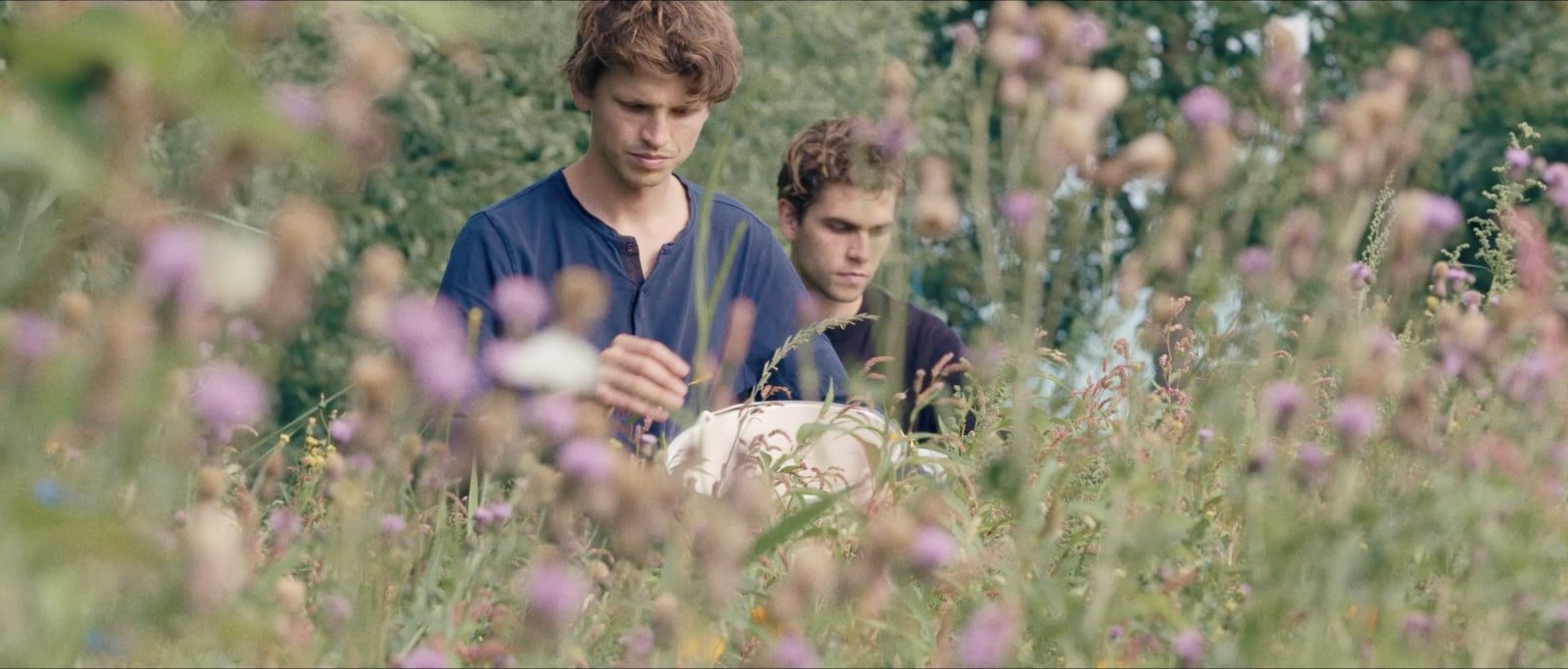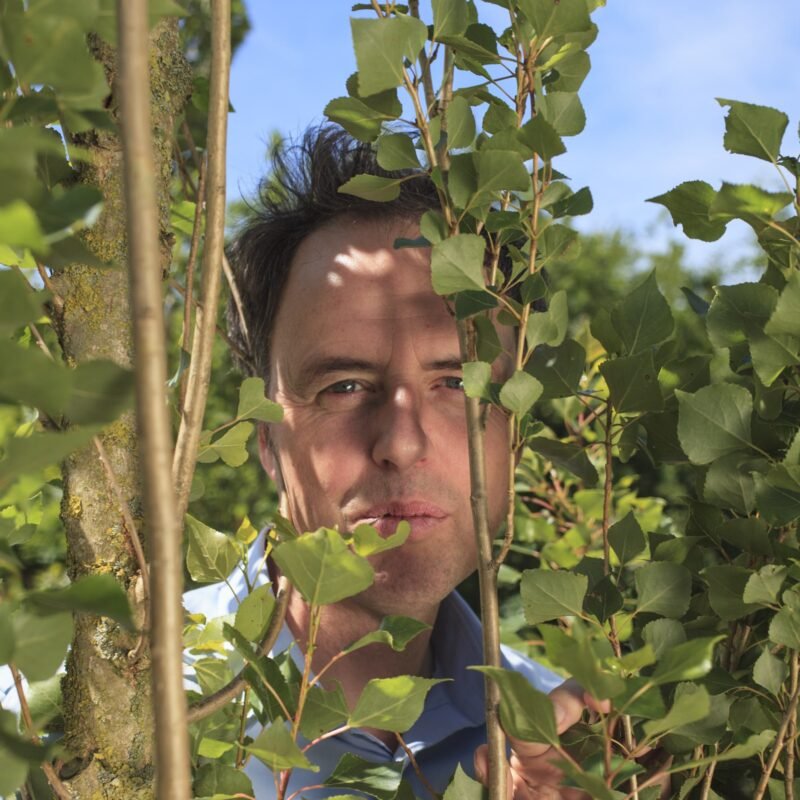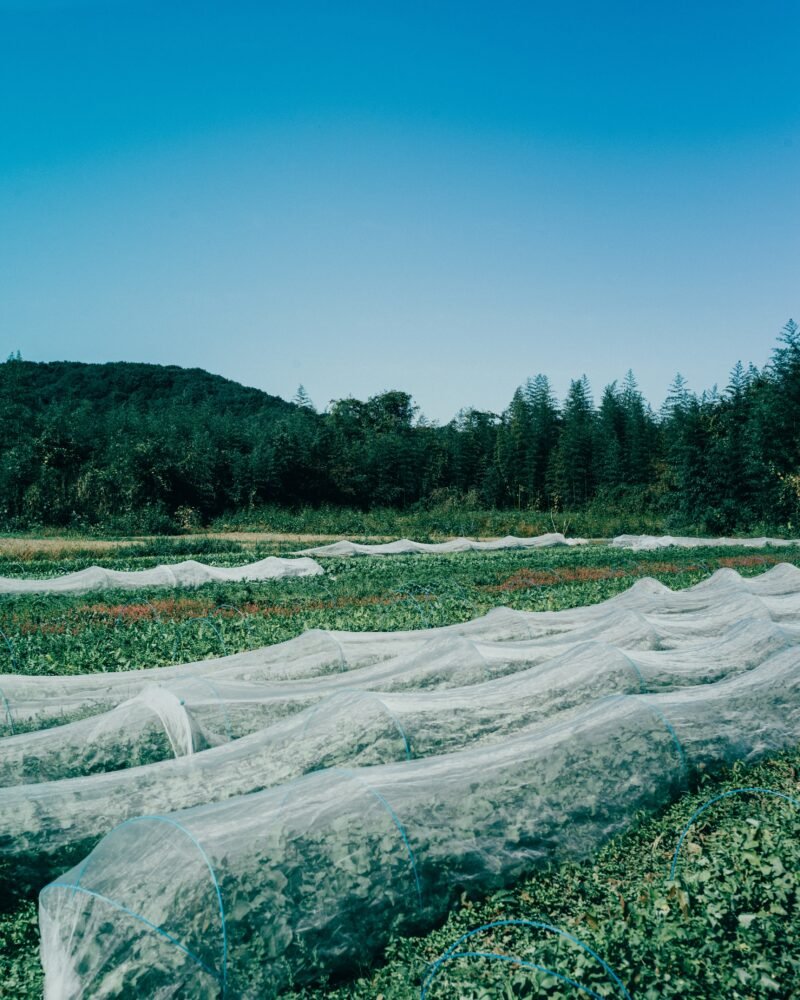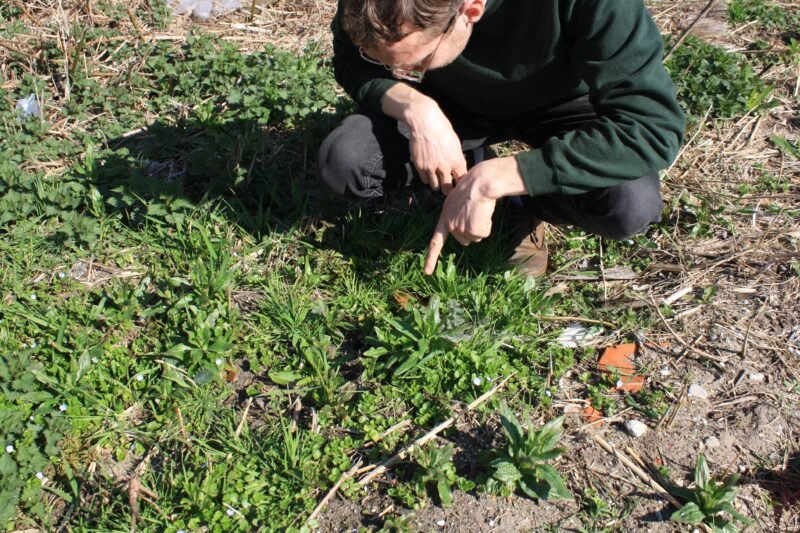How Herbal Tea Restores Biodiversity on Dutch Farmland

In the Netherlands, two thirds of the country's surface is covered with agricultural land. Wilder Land, together with Dutch farmers, is bringing more biodiversity into that rather monocultural landscape, with delicious herbal teas as a result.
Daan van Diepen and Matthijs Westerwoudt of Wilder Land wanted to challenge the view that the bigger a company becomes, the more damage it does to the environment. They also noticed that most of the herbs used in herbal tea are imported from abroad, while they naturally grow in the Netherlands. The two decided to start producing tea from local herbs. Thus, Wilder Land was born.
A Biodiverse Business Model for Farmers
Wilder Land creates wild and varied herb gardens on the edges of large agricultural areas, containing plants that most people consider to be weeds. Half of the crops are collected, dried and ground after harvesting for the production of tea blends, the rest are left to grow for the benefit of bees, butterflies and other animals. Plants that can be found in Wilder Land tea are dandelion, hemp, camomile, calendula, cornflower or meadowsweet. For the time being, Wilder Land is buying some of its herbs from an organic supplier, but the young company is aiming for 100% home-grown ingredients. And that will soon be possible, because their activity is attracting more and more interest from farmers. Wilder Land’s impact is felt in two ways. Firstly, it contributes to the recovery of — often exhausted — agricultural land. Secondly, the sale of products to consumers and businesses raises awareness of biodiversity issues.

Changing the Image of Weeds
In both rural and urban areas, weeds do not have a good reputation. Every Saturday, the sound of lawnmowers reminds us of the need to tame nature. The sight of an overgrown patch of land in the city makes us wonder why nobody is doing anything about it. Lush and natural green spaces apparently do not fit into our image of green in the city. A yellow dandelion on the lawn makes every garden owner reach for a weedkiller. Why? Because weeds are simply not wanted. And they are considered harmful for a reason. Overgrown weeds can cause major crop losses on farmland and can crowd out decorative plants in backyards. Therefore, it is important to balance their presence with cultivated plants. The first step to managing it is to get to know it. This is where initiatives like Wilder Land come into play.

Weeds contribute to land rehabilitation by improving soil quality, stimulate plant pollination and facilitate the return of nutrients from plants to the soil. Some plants are also edible and have medicinal properties. Perhaps knowing that dandelions, nettles and plantain can be used to make tea or soup or to heal wounds will give us a more favourable view of these plants? Last but not least, nomenclature can play an active role in changing attitudes towards weeds. The Dutch are lucky in this respect. Linguistically, kruiden (herb) is not that far removed from onkruid (weed). And (on)herb actually sounds pretty cool.

It’s not just a business idea, it’s a call to look at the world around us in a new way
Tea from Wilder Land is not only a feast for the eyes, when colourful leaves unfurl their essence, but also contributes to the biodiversity of our environment. It is not just a business idea, it is a call to look at the world around us in a new way. To reconsider the value of what is considered useless or harmful. So let’s take a more favourable view of weeds, while sipping a cup of herbal tea.



